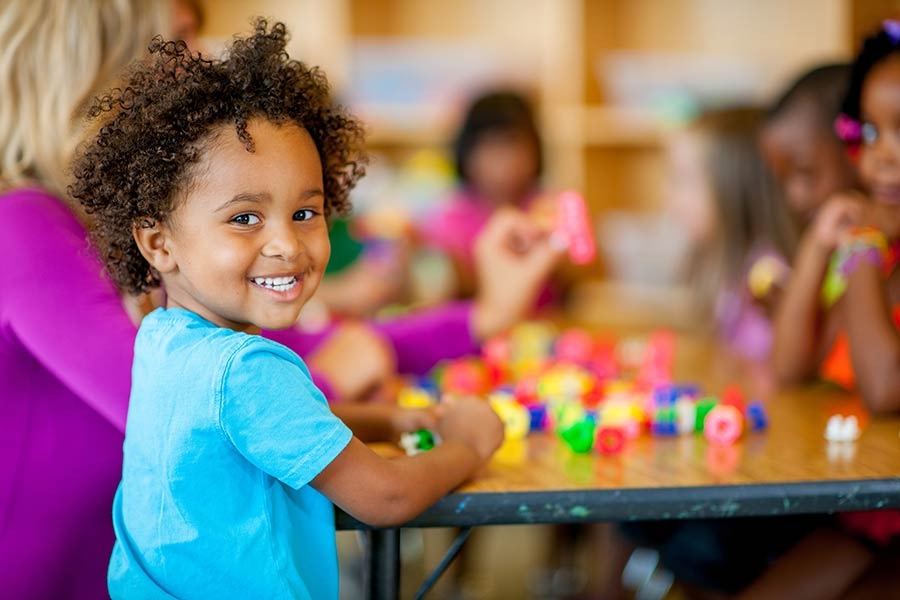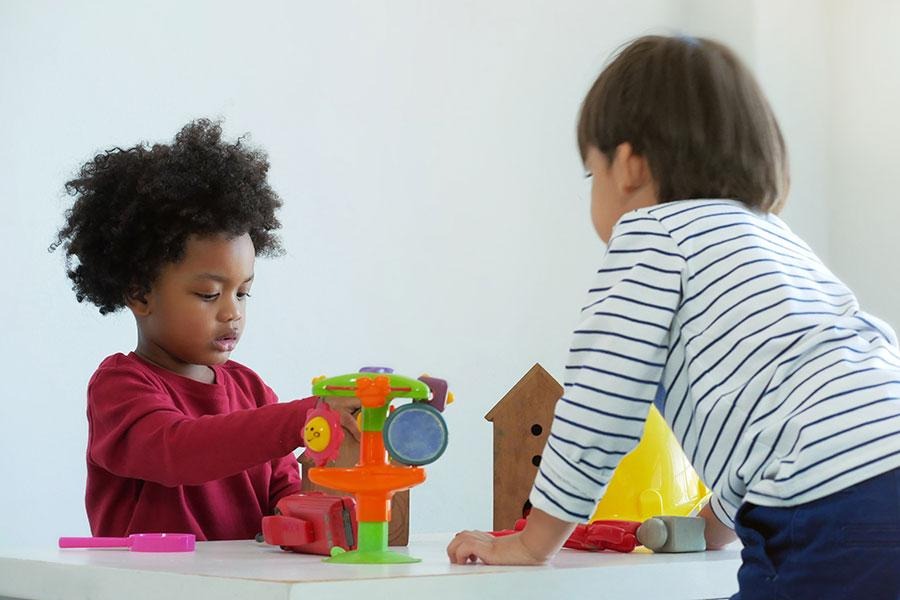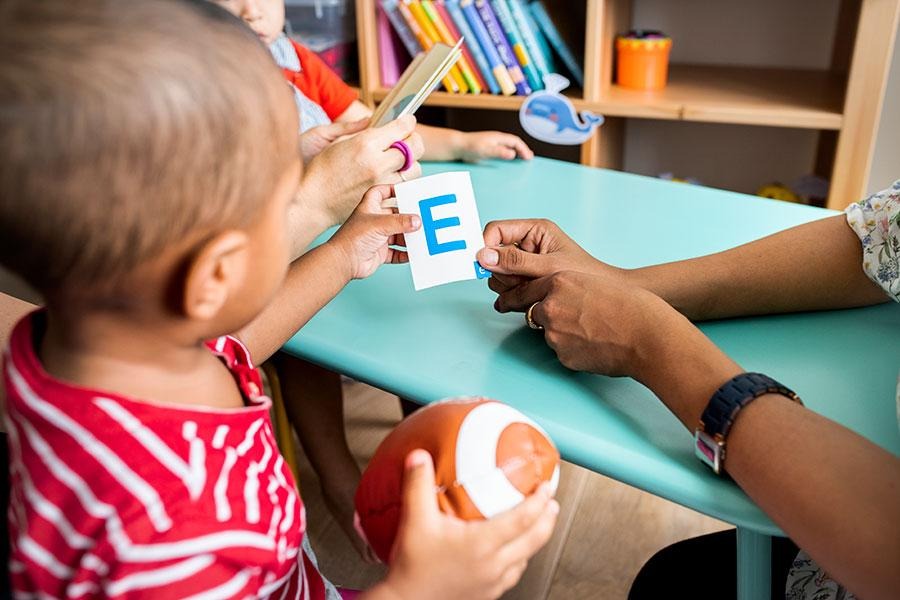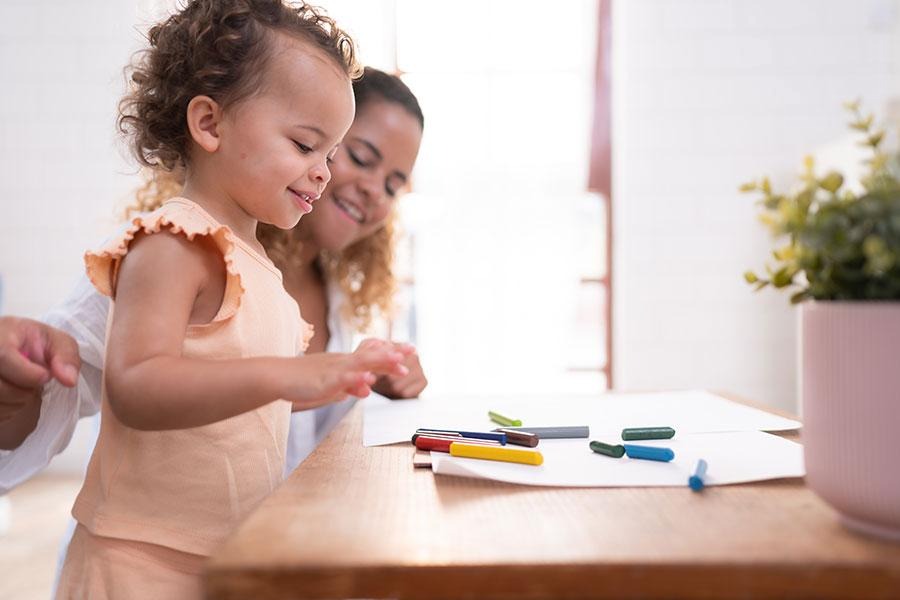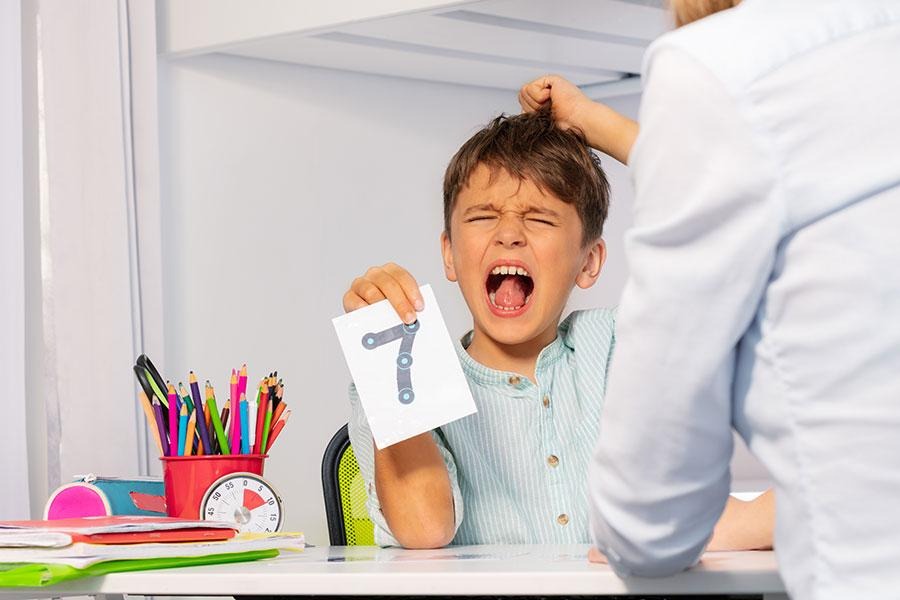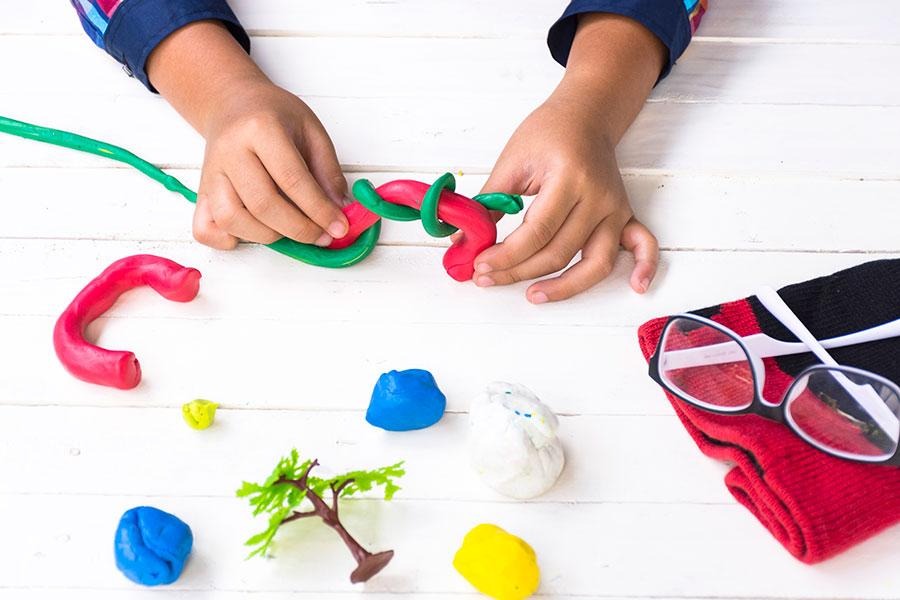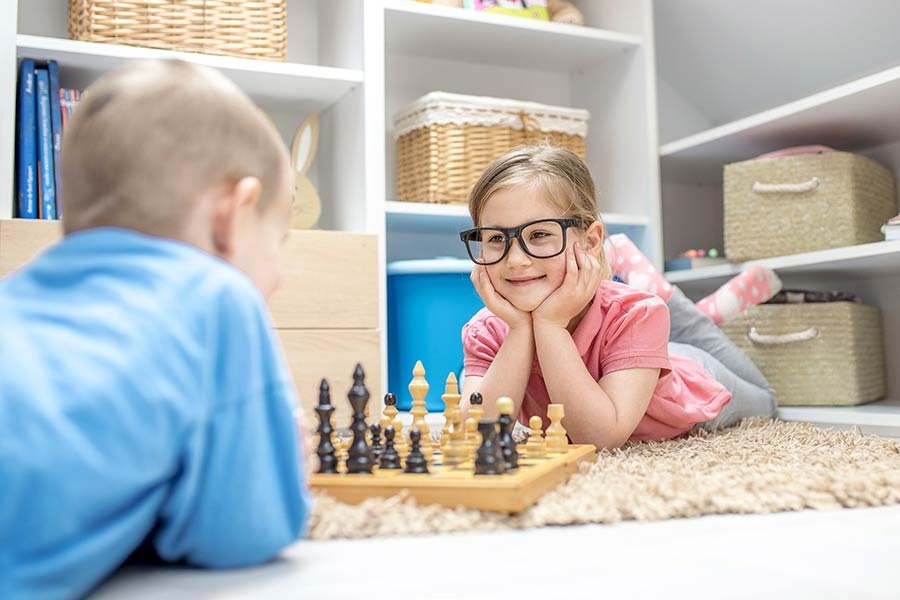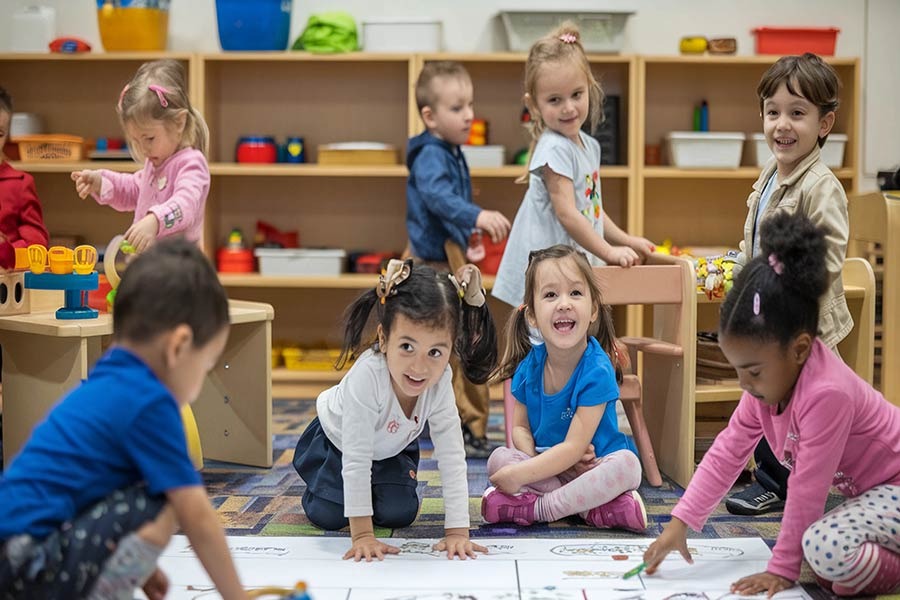In today's fast world, we often think about sending our kids to Pre-K. Choosing Pre-Kindergarten is not just for convenience. It shows we care about our kids' growth. Studies by big groups like the National Institute for Early Education Research (NIEER) and the Harvard Graduate School of Education show early education's benefits. These early years are important for a child's success later on. We hope this makes parents and guardians think more about Pre-K for their kids.
Understanding Early Education
In our journey through early education, we learn about definitions of Pre-K. It's for kids aged 3 to 5. It helps them grow in many areas. This growth gets them ready for school. It's important for us to know how these programs work.
What is Pre-Kindergarten?
Pre-Kindergarten is a program for young kids. It gives them the skills they need for Kindergarten. It focuses on playing with others, solving problems, and starting to read. Kids get to explore new ideas. This makes them ready to learn more.
Different Types of Pre-K Programs
When looking at types of early childhood education, we see many kinds of Pre-K. Each one has its own way of teaching. Here's a quick look at some important ones:
| Program Type | Key Features | Target Demographic |
|---|---|---|
| Public Pre-K | Government-funded, accessible to all | Typically low-income families |
| Private Pre-K | Tuition-based, often with smaller class sizes | Families seeking tailored education |
| Montessori | Child-centered, hands-on learning materials | Families interested in self-directed learning |
| Head Start | Focus on low-income families, including health support | Underprivileged children |
| Waldorf | Creative arts and imagination-focused curriculum | Families valuing holistic education |
Knowing about these early education types helps us choose the best for our kids. Each program has its benefits. The right choice can make a big difference in our child's life. It sets them on a path to success.
Value of Pre-Kindergarten
Looking into Pre-Kindergarten shows us how it helps kids grow early on. It makes kids ready for school later. Going to Pre-K helps kids read and count better early. It gives them a big boost. Also, learning to play and talk with other kids is big in Pre-K.
Academic Advantages
Kids who go to Pre-K often do better in school later. They get better at reading and math, showing in tests. Because of Pre-K, kids find starting real school easier. And they keep doing well as they grow. In Pre-K, kids start learning how to think through problems better.
Social Skill Development
Being able to get along with others starts in Pre-K. It's a place to learn sharing, caring, and talking right. Being with other kids makes them feel they belong. This helps them feel good inside. Learning to be part of a group helps kids in school and with friends later. Pre-K gets them ready to meet all kinds of people and make friends that last.
Long-Term Benefits of Early Education
Research shows Pre-K helps kids a lot as they grow. It gives them skills for later in life. They learn better in school and become good problem solvers.
Improved Academic Performance
Kids in Pre-K end up doing better in school. They get higher grades and do well on tests. They also finish school more often. Early learning helps them think better and solve problems.
Emotional and Behavioral Benefits
Pre-K also helps kids feel and behave better. They learn to control themselves and get along with others. This early schooling helps them become strong and less likely to act out. It makes them ready to face different situations with others as they grow up.
How Pre-K Prepares Children for Kindergarten
Pre-Kindergarten helps kids get ready for kindergarten. They learn important skills and become more independent. This early education is key for them to do well in school later on.
Building Essential Skills
In Pre-K, kids do lots of fun activities. These help them learn important skills for kindergarten:
- Talking more and better through group talks and story time.
- Thinking hard to solve problems.
- Getting better at using their hands by doing art and playing.
These activities make kids feel sure of themselves when they start kindergarten. What they learn in Pre-K sets them up for success in school.
Fostering Independence
In Pre-K, kids learn to do things by themselves. They follow routines and play in ways that help them grow. For instance, they:
- Pick their supplies for projects.
- Decide what to do during playtime.
- Work with others in group activities, learning to share and cooperate.
Learning to be independent makes kids more confident. It helps them get ready for a school where they need to do more on their own. It also helps them love learning, which is important for all of school.
Cost-Benefit Analysis of Pre-K Programs
Looking at the financial side of Pre-K programs shows a strong reason to invest early. It not only helps kids grow but also saves money for families and everyone else.
Investing in Early Education
Putting money into early education brings big benefits. Studies show kids in Pre-K do better in school and life later on. They have fewer problems. This saves money on extra help they might need.
We make sure our kids are ready for the future by investing early. This means they'll do well later on.
Potential Savings in Future Educational Costs
The money we spend on Pre-K pays off later. The Brookings Institution found it saves money since fewer kids need special help or drop out. This means cheaper costs for schools later on. Investing early pays off in many ways.
| Pre-K Benefits | Future Cost Savings |
|---|---|
| Lower remediation needs | Reduced expenditure on tutoring and extra classes |
| Decreased special education placement | Lower costs for special services |
| Higher graduation rates | Less spending on dropout recovery programs |
| Enhanced workforce readiness | Increased earning potential, contributing to economic growth |
Looking closely, we see Pre-K programs have a big financial impact. Early education is key for our kids and our economy's future.
Parental Perspectives on Pre-K
We often talk to other parents about Pre-K. They have been there before us. They share their feelings and thoughts. This helps us make the best choices for our kids.
Thoughts from Other Parents
Parents share a mix of feelings about Pre-K. Some feel good about their choice. Others worry about their child's big move. They talk about:
- Making friends and learning to socialize.
- Wondering if the Pre-K is good.
- Needing to talk with the teachers.
- Trusting teachers to care for their kids.
Parents talking helps everyone. They share what worries them and what works.
Our Role in Early Education Decisions
We have a big part in picking our child's Pre-K. It's more than just signing them up. We need to get involved and help shape their learning.
We can help by:
- Fighting for great schools for all kids.
- Giving tips to make learning better.
- Building a team to tackle parents' problems.
By tackling early education together, we make things better for our kids.
Challenges in Accessing Pre-K Programs
Many families find it hard to get quality early education. It's tough because of money issues, where they live, and program standards. Understanding these problems helps us see big picture issues. They impact our kids and communities.
Income Disparities and Availability
Lower-income families struggle a lot to find Pre-K programs. Few public options are affordable, making it harder. High-quality private programs cost too much. This makes it unfair because not every child gets the same chances.
Quality vs. Quantity of Programs
When looking at Pre-K programs, the quality varies a lot. Some are good, but not all. They don't all have nurturing places to learn, said by the NAEYC. Kids need to be in strong programs to grow well. It's important to pick the best ones for their learning and growth.
| Program Type | Average Annual Cost | NAEYC Accredited | Income Eligibility Requirements |
|---|---|---|---|
| Public Pre-K | $0 - $5,000 | Yes | Varies by state |
| Private Pre-K | $5,000 - $15,000 | Varies | None |
| Head Start Programs | $0 | Yes | Low-income families |
| Co-op Pre-K | $3,000 - $8,000 | Varies | Varies |
The Role of Early Educators
Early educators are very important for young kids. They help shape the kids' first learning experiences. They make sure kids do well in school and get along with others. This is because they know a lot and are well-trained.
Training and Qualifications
Early educators need lots of training to be great. They study a lot about young kids and how they learn. They go to special classes and always learn new things. This makes them ready to give the best lessons.
Good training helps teachers understand kids better. They learn about different ways kids grow and what they need. This makes sure every kid gets the right help to learn and grow.
Impact on Child Development
Teachers do more than just teach ABCs and 123s. They show how to be good people. Kids learn how to be brave, kind, and understand others. This helps them make friends and do well at school in the future.
By talking and playing with kids, teachers help them in many ways. This helps kids love learning and do great things later. Teachers really help kids get ready for life.
| Aspect | Impact of Early Education Professionals |
|---|---|
| Training Level | Pursuit of degrees and certifications enhances knowledge and skill sets. |
| Emotional Support | Positive interactions help develop children's emotional resilience. |
| Academic Outcomes | Children outperform peers in later academic stages. |
| Social Skills | Adequate training fosters cooperative play and communication abilities. |
| Individual Attention | Well-trained educators provide tailored support to diverse learners. |
Alternatives to Traditional Pre-K
Finding the right early schooling can be hard for families. Non-traditional Pre-K options offer special chances that meet kids' and families' needs. Homeschooling for little kids is one good choice. It lets parents make learning plans that fit their kids' ways of learning and what the family thinks is important. Community learning resources are also key for young kids learning. They make learning better for them.
Homeschooling Approaches
Homeschooling is flexible and unique for young kids. Families can choose from many ways, such as:
- Unit Studies: This mixes many subjects into one theme. It makes learning fun and relevant.
- Montessori Method: Kids lead their own learning by doing things themselves and exploring.
- Structured Curriculum: Parents use ready-made programs. This gives a clear learning path.
- Interest-Based Learning: Kids learn about things they like. This keeps them interested and eager to learn.
These choices help families include learning in their daily lives. They match what each child needs and likes. This shows why homeschooling is a great Pre-K alternative.
Community-Based Learning Options
There are also great ways to learn with others in your community, like:
- Playgroups: Playing with other kids helps them learn how to get along while having fun learning.
- Cooperative Learning: Families teach together. This builds a helpful community spirit.
- Local Workshops: Places like libraries and parks have fun learning activities for young kids.
- Nature-Based Learning: Being outside helps kids learn about nature. They see how everything is connected.
Using community resources helps kids learn important social skills. It also makes learning fun without needing to be in Pre-K.
Conclusion
Pre-K is very important. It helps kids grow in learning and as people. It teaches them important skills they will use later.
This early learning makes kids smarter and better at getting along with others. It also helps them handle their feelings better.
We need to invest in our kids' early education. What we do for them now will help them succeed in the future. Quality Pre-K programs make a better future for all of us.
It's good for families to look for the right Pre-K for them. This helps build a strong start for our kids. It helps them keep learning and growing their whole life.
FAQ
Is Pre-Kindergarten necessary for my child's development?
Yes, Pre-Kindergarten is very important for young kids. Studies show kids who go to Pre-K do better in school later. They learn more and get ready for future classes. By joining Pre-K, we help our kids be successful in the future.
What should I consider when choosing a Pre-K program?
In choosing a Pre-K, look at what they teach and the teachers. Make sure it fits what you hope your child learns. Programs like Montessori use different ways to teach. Pick one that suits your child best.
What are the benefits of early education on social skills?
Early education helps kids get along with others. In Pre-K, kids learn to share, talk, and understand feelings. These skills help them make friends and do well in school and life.
How does Pre-K impact long-term academic performance?
Kids who go to Pre-K usually do better in school later. They are more likely to finish high school and go to college. Joining Pre-K is a smart choice for your child's education and future.
Can enrolling my child in Pre-K reduce future educational costs?
Yes, Pre-K can save money on education later. Kids in Pre-K might not need extra help in school. This saves money. Studies show early education is a good investment for the future.
What challenges do families face in accessing quality Pre-K programs?
Getting into good Pre-K can be hard for some families. This is because of less money or not enough spots. Everyone should help make Pre-K available for all kids.
How do early educators influence a child's development?
Teachers in Pre-K are very important. Their skills can make learning better for kids. Good teachers help kids grow up smart and kind. They are big role models.
What alternatives exist to traditional Pre-K programs?
Other options include home school and learning with others in groups. These can be just as good for learning. They let families choose what is best for them. Kids still get to learn a lot.
